
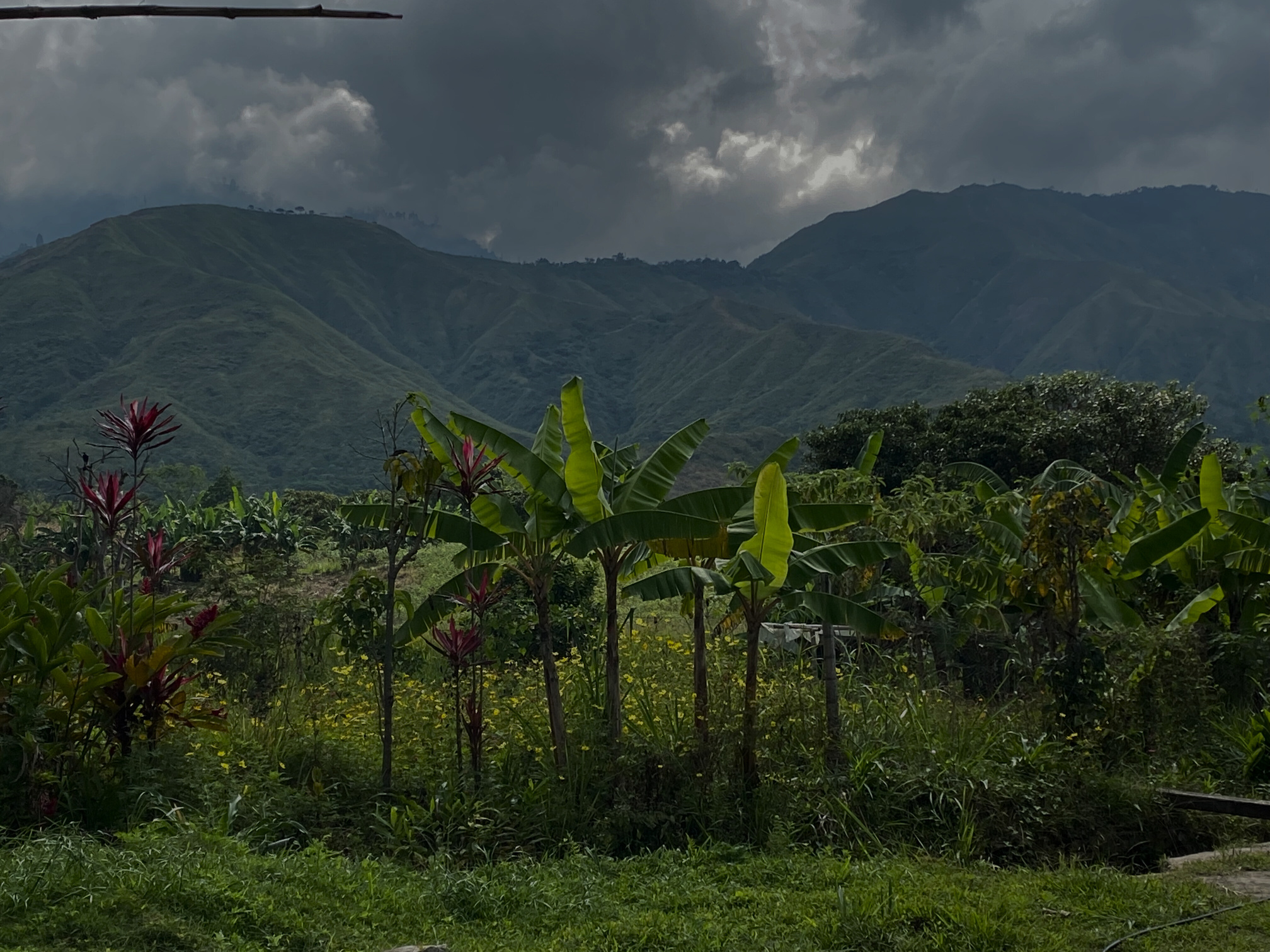
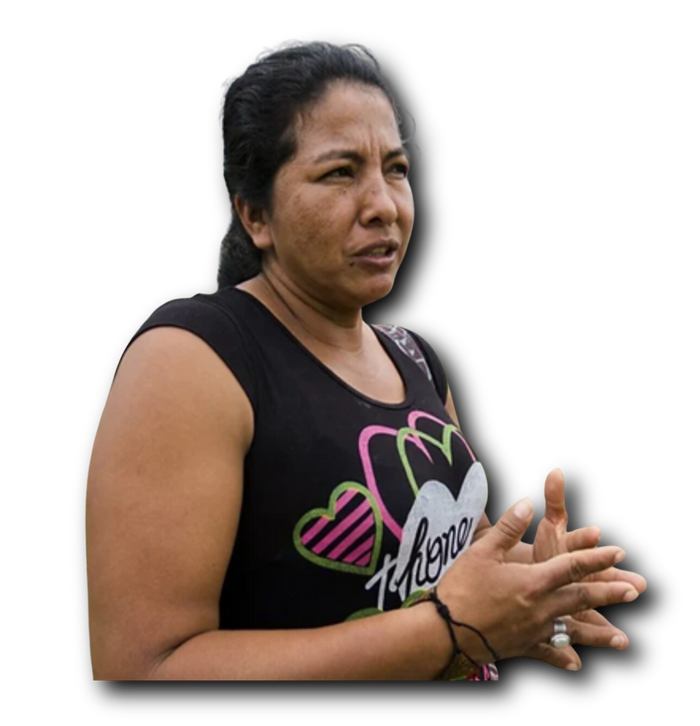
Briceida Lemos defines herself as a campesina and fensuagrista woman from Northern Cauca. She is a member of the Mesa de Víctimas del municipio de Miranda (Cauca), of the Municipal Planning Commission of the same municipality, and of the Asociación por la Proconstitución de la Zona de Reserva Campesina de Miranda (ASPROZONAC), an organization that is part of the Federación Nacional Sindical Unitaria Agropecuaria (FENSUAGRO).

Mon, Nov 6
Warren Wilson, Canon Lounge
5:30 PM
Tues, Nov 7
Appalachian State, Plemmons, room 417
1 pm
Sun. Nov 12
Winston, NC, SG Atkins Enterprise Center
2 pm
Tues, Nov 14
Duke Divinity School Room 0012
12:30 pm
Tues, Nov 14
Duke Por Colombia
John Hope Franklin Center, Ahmadieh Family Conference Hall, Room 240
6:30-8:30 Evento en Español
Wed. Nov 15
Garner, NC, 1700 Waterfield Ridge Pl.
11 am
Sat. Nov 18
1640 Columbia Road NW, D.C
5 pm
Mon. Nov 20
Virtual Youth Speak-Out Ages (15-25)
Register HERE


La Elvira farm is not just a piece of land. It is a space in which dispossessed campesina families are building food sovereignty and peace through education and cooperation. This land, which was once a sugarcane plantation and then a cattle ranch, provides livelihoods for 25 families and others who both cultivate the land as well as build peace.
The farm has 105 hectares (260 acres) of land. A part of the land, consisting of 40 ha (100 acres), is covered by a native forest that was left for conservation. The remaining 65 ha (160 acres) were distributed among 25 participating families, and a piece was shared with a group of ex-FARC combatants who had joined the 2016 peace process and as part of their reincorporation needed additional space for livelihood production.

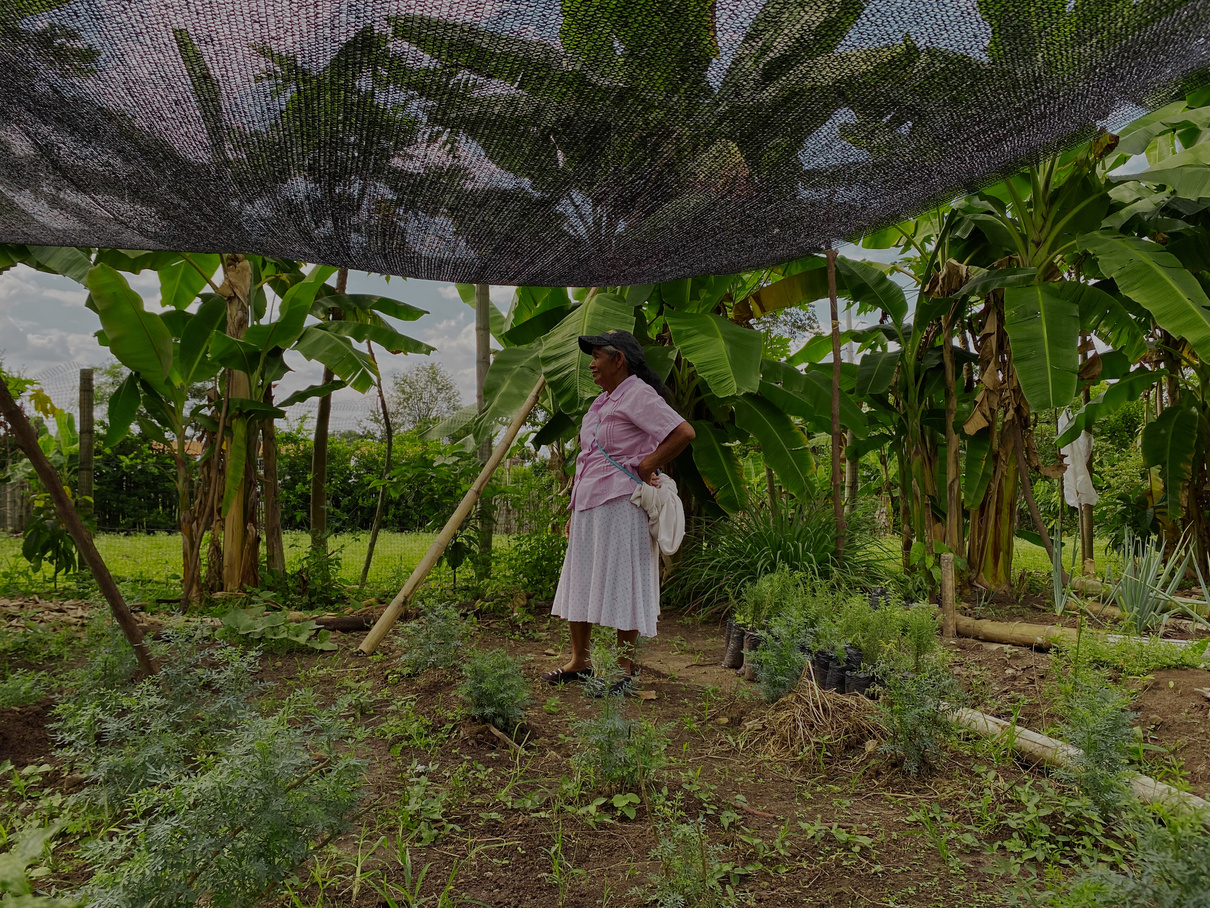
SCHOOL OF AGROECOLOGY
The School of Agroecology was born in 2020 as a result of collective struggles and the need to focus on building food sovereignty. Forty families participate in this project: twelve are from La Elvira farm and the remaining ones are from the surrounding villages.
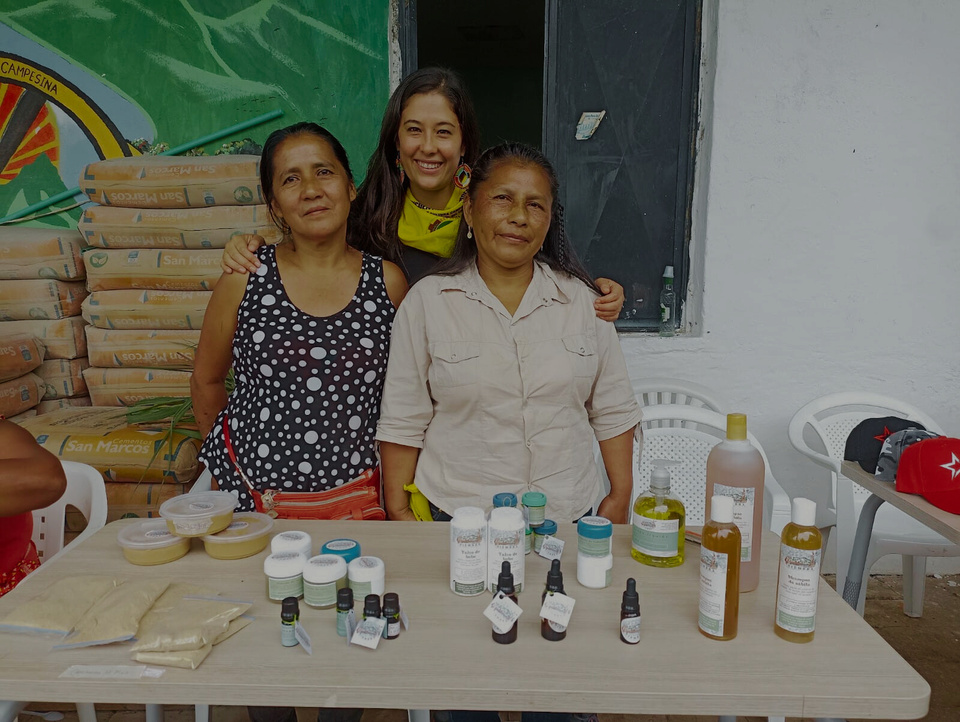
WOMEN’S LEADERSHIP SCHOOL
The Women’s Leadership School was created in 2022 as an offshoot of the School of Agroecology. It not only provides a space for training, but also proclaims the rights of women in the region.
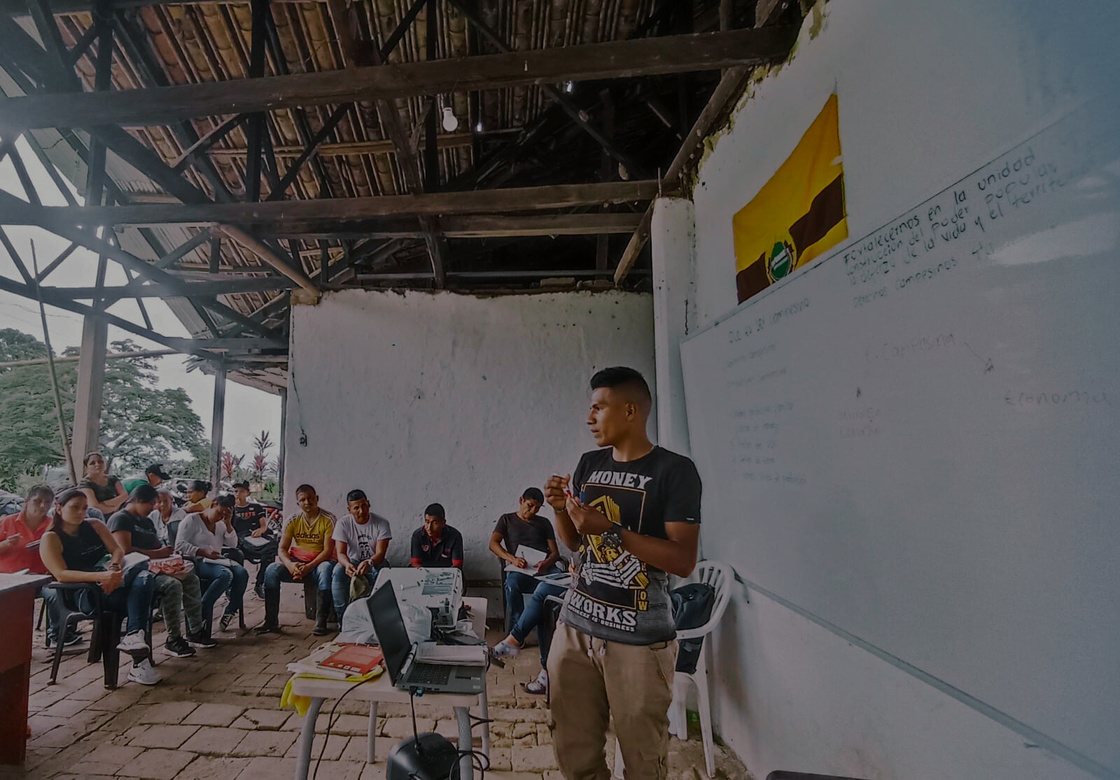
CAMPESINO UNIVERSITY OF MIRANDA
The idea of a Campesino University was born from the School of Agroecology and this university project began to take shape in 2021. It grows from a great collective commitment in a context of high levels of inequality in access to education.
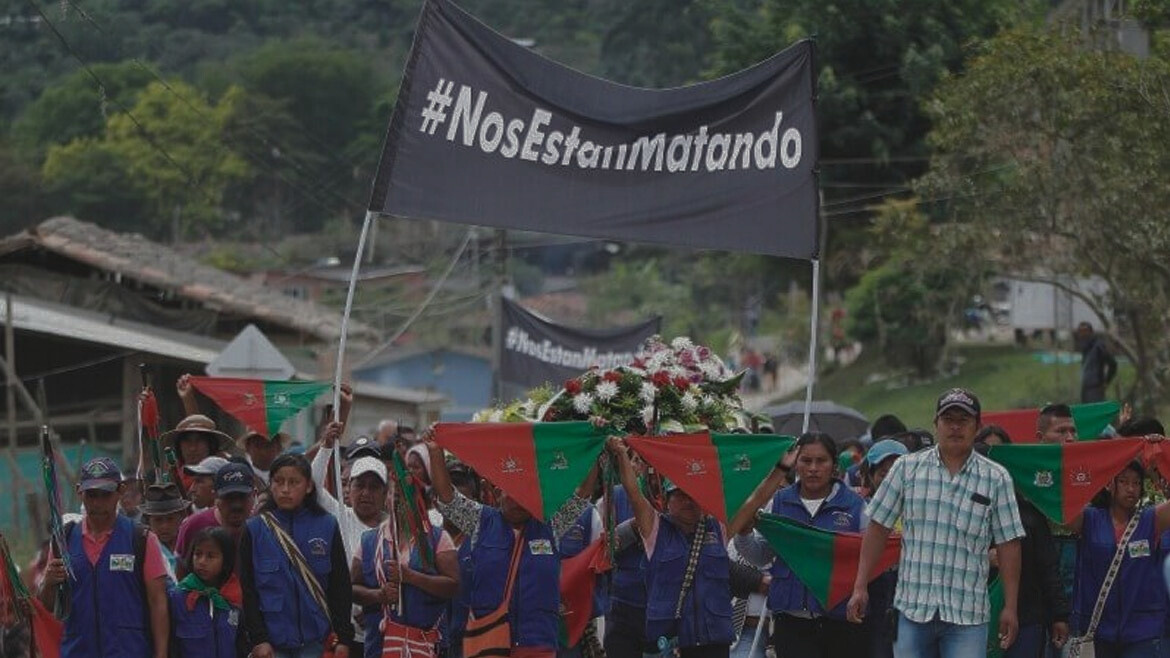
CAUCA HUMAN RIGHTS CONTEXT
127 social leaders have been murdered in Colombia between January and September 2023. Twenty five of these assassinations took place in Cauca, turning it into a department with the highest number of murders of human rights defenders for the second year in a row. The violence in Cauca has not been limited to the assassinations though. In 2023, at least four massacres occurred in the same department, in addition to cases of forced displacements and growing number of forced recruitment of children by illegal armed groups.
The department’s civilian population has been directly impacted by attacks of the armed groups against military and police buildings, as well as the lack of immediate response of the government to prevent violations of fundamental human rights.
Powerful illegal armed groups have established their presence throughout the territory of Cauca department, among them: the National Liberation Army (ELN), the Central General Staff (EMC), the Second Marquetalia, the Gaitanista Self-Defense Forces of Colombia (AGC), as well as to a lesser extent, the Bolivarian Border Commandos, in the south of the department. The disputes over control of the territory and illegal economy between the armed groups have had devastating impacts on the civilian population in terms of forced displacement, confinements, forced recruitment of minors, assassinations of social leaders, and massacres, among others.
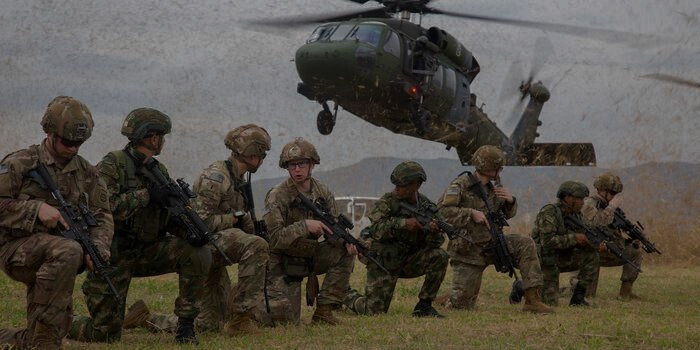
U.S. FOREIGN POLICY: NEOLIBERALISM AND MILITARIZATION
Cauca is one of the most militarized departments in Colombia. The national army maintains its presence not only through the Third Division, but also with the Pacific Naval Force. It has also been one of the departments where the process of eradication of illicit crops has been the strongest. However, the extensive use of force has not translated into peace for the civilian population, as can be seen in the high numbers of massacres and assassinations of social leaders.
According to a Security Assistance Monitor report, Colombia was the primary recipient of the United States foreign military training between 2000 and 2020. Colombia is also the largest recipient of U.S. security sector assistance in the Western Hemisphere. Between 2010 and 2020 alone, Colombia received $2.97 billion in security sector assistance (SSA) from the United States, under the guise of support for the Colombian government’s anti-drug campaign and war against the guerrilla movements.
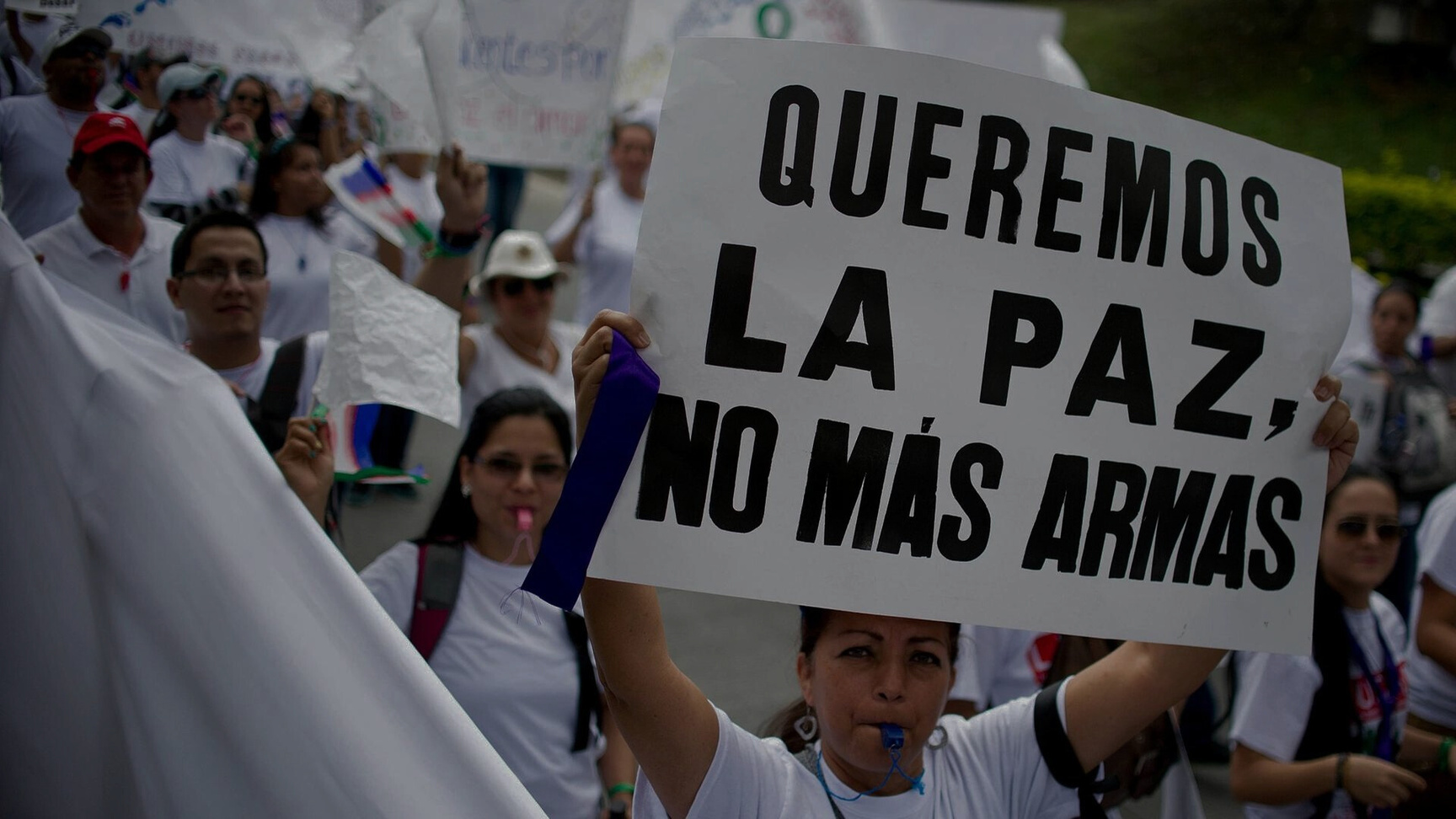
THE STRUGGLE FOR PEACE
Between the attempts to build peace, on the one hand, and the boycott of this process on the other, Cauca has become one of the regions most affected by violence in recent months. In the north part of the department, in the context of conflict and violence, where land disputes have generated diverse tensions between communities, multiple processes of non-violent resistance continue to be woven by black, indigenous and campesina communities. In this context, the collective project in defense of food sovereignty, the La Elvira farm, was born in Miranda, northern Cauca.
Complete Google Form to:
- Register for Events
- Sign up for the virtual youth speak out on Nov 20 at 7pm EST
- Stay involved with WFP
- Join a Whatsapp Group


